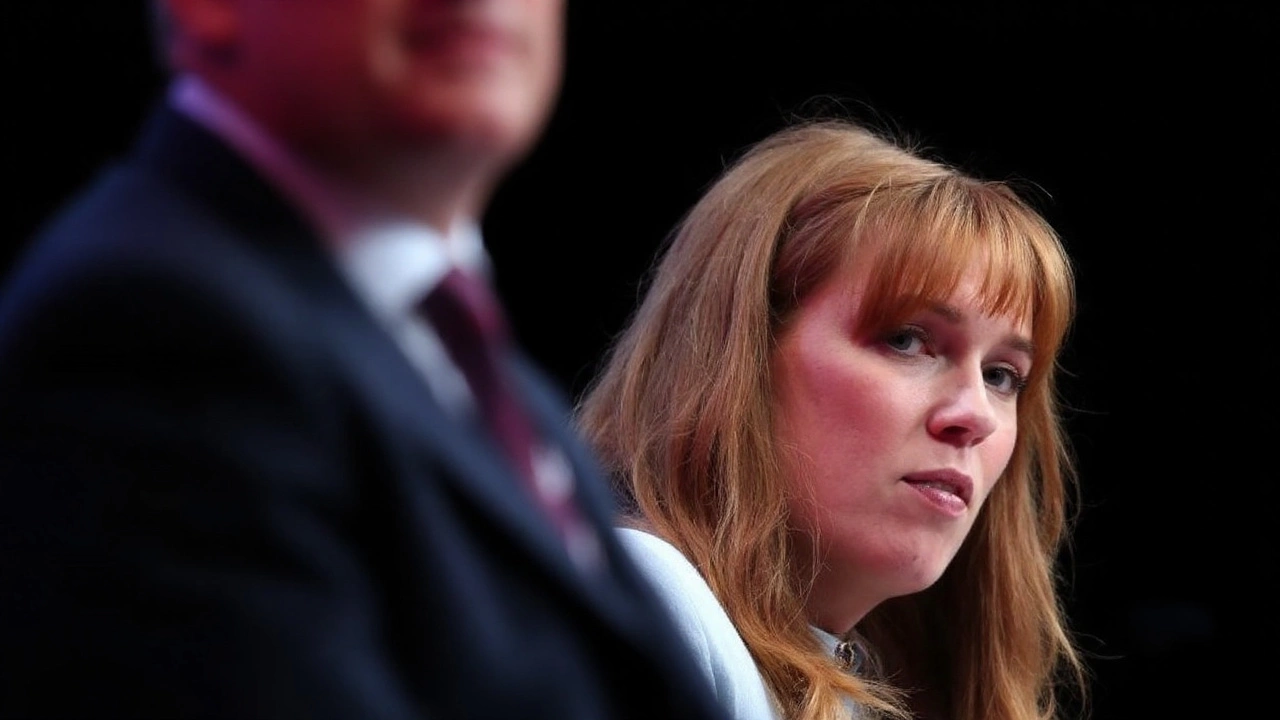A stress test for Labour’s ethics machine
One of the government’s most recognisable ministers has gone over a tax error, under rules her own party promised would clean up politics. On 5 September 2025, Angela Rayner resigned as Housing Secretary and Labour’s deputy leader after the Prime Minister’s independent adviser on ministerial interests, Sir Laurie Magnus, concluded she had not met the “highest possible standards of proper conduct.”
The chain of events began when questions were raised about her tax affairs. Rather than wait for pressure to build, Rayner referred herself to the ethics adviser. She said she was working with specialist lawyers and HM Revenue and Customs to settle what she owed. The case moved quickly by Westminster standards, given the stakes and her seniority.
In her resignation letter to Sir Keir Starmer, Rayner admitted she fell short. She said she regretted not seeking professional tax advice earlier, given the complexity of her family arrangements and the responsibilities she held in government. She insisted there was no intent to avoid paying tax and said she took “full responsibility” for the mistake.
Sir Laurie Magnus’s role matters here. As the independent adviser on ministerial interests, he investigates whether ministers have complied with the Ministerial Code, interviews those involved, examines documents, and advises the Prime Minister on the outcome. He does not sack ministers, but his findings carry real weight. Magnus has been through high-profile storms before: in 2023 he examined the Nadhim Zahawi tax affair and concluded it breached the code, a finding that led to Zahawi’s exit as Conservative Party Chair.
Labour came to power promising higher standards and more transparency after years of ethics rows in Westminster. The party created a tougher framework for handling alleged breaches, with a clearer route to independent investigation and a presumption that outcomes would be published or summarised promptly. The Rayner decision now becomes the first landmark example of that system in action—showing that seniority does not inoculate ministers from consequences.
Starmer called the resignation “very painful” but also “the right one.” He praised Rayner’s role in Labour’s 2024 election win and her work at the Housing Department, while signalling she would remain a major figure in the party outside government. She continues as an MP for Ashton-under-Lyne, but her departure from the deputy leadership triggers a party-wide contest.
The political fallout cuts both ways. On one hand, the resignation is a blow to Starmer’s authority, removing one of his most effective campaigners and a bridge to Labour’s grassroots. On the other, it is a visible sign that the ethics regime has teeth—something Starmer promised and critics said he might flinch from enforcing. Conservatives moved quickly to call it a damaging scandal; Labour allies countered that the system worked as designed.

Reshuffle shockwaves and what comes next
Downing Street wasted no time replacing key roles. David Lammy moves into a double brief as Deputy Prime Minister and Justice Secretary, a promotion that puts him at the heart of domestic policy and the cabinet’s day-to-day running. Yvette Cooper takes over the Foreign Office, shifting from her long stint on home affairs to represent Britain on the world stage. Shabana Mahmood becomes Home Secretary, and Steve Reed steps into the Housing Secretary job Rayner vacated.
That line-up carries real policy implications. For justice, Lammy faces a courts backlog, prison capacity pressures, and public frustration over delays. He has long argued for modernising the system and speeding up cases; now he owns the results. At the Home Office, Mahmood inherits asylum processing, small boat crossings, and neighbourhood policing. She has argued for “firm and fair” enforcement paired with competence in delivery—expect early moves aimed at restoring grip.
Cooper’s switch to the Foreign Office is a statement about experience and message discipline. A former cabinet minister under Gordon Brown, she knows Westminster machinery inside out and is seen as a steady communicator abroad. Her brief will be crowded: strained relations with China, the war in Ukraine, trade diplomacy with the EU and US, and the task of rebuilding the UK’s diplomatic service after years of churn.
Housing is one of the government’s biggest tests. Reed steps into a department that has to deliver on ambitious building targets, untangle planning bottlenecks, and coax private and social housing starts higher. Investors and councils have been waiting for clarity on planning reform timelines; expect Reed to signal continuity on supply, brownfield development, and infrastructure-led growth to reassure markets and mayors.
The Labour Party now turns to the deputy leadership election. Under Labour’s rules, the National Executive Committee sets the timetable and nomination thresholds. MPs nominate candidates first; then party members and affiliated supporters vote using a preferential ballot. The contest will test Starmer’s coalition inside Labour—unions, members, and MPs—and could reopen ideological lines that have stayed quiet since the general election.
There are other practical questions. Who will front the party’s grassroots campaigning machine in the short term? Rayner often filled that role, rallying activists and shaping messaging beyond Westminster. Some of that will shift to the party chair and regional organisers until a new deputy is in place. Inside government, the Cabinet Office will juggle responsibilities that the Deputy Prime Minister typically coordinates, especially on delivery reviews and cross-department goals.
For the ethics regime, this was a live-fire exercise. The sequence—self-referral, investigation by the independent adviser, swift decision, resignation, and immediate ministerial replacements—was visible and relatively fast. Downing Street confirmed the adviser’s conclusion and the ministerial changes on the same day, aiming to show control. Whether the full findings are published in detail or summarised, and how much HMRC ultimately discloses, will shape public trust in the process.
Opponents will say the episode shows Labour is not immune to the same failings it attacked in office. Supporters will argue the opposite: that when the test came, standards trumped politics. Both can be true at once. The government has lost a powerful communicator and a cabinet minister. It also has an example it can point to when asked whether its ethics rules are more than slogans.
What to watch now: the NEC’s election timetable, any further clarifications from HMRC or the ethics adviser, Reed’s early housing statements to keep development plans on track, and Mahmood’s first moves at the Home Office. If the new top team stabilises quickly, the reshuffle shock may fade. If not, the deputy leadership race could become a proxy battle over Labour’s direction just as ministers try to keep their legislative calendar on schedule this autumn.
